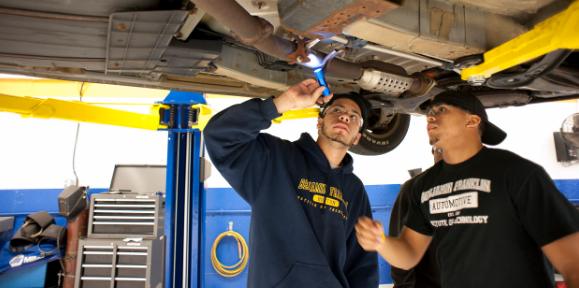SEO Services for Local Business? — An Easy Guide to Get Started in 2022
Are you a local business owner wondering how to get started with SEO services? If so, you’re not alone. Many small businesses are confused about where to start when it comes to optimizing their website for search engines.
The good news is that you can take some easy steps to get started with SEO and improve your chances of ranking higher in search engine results pages (SERPs). This guide will give you an overview of what SEO is and how it can benefit your business. We’ll also provide tips on getting started with SEO services, so you can begin driving more traffic to your site. To begin on the journey to maximum visibility, the top leading search engine optimization services provider, Jumpto1, can help you.
What Is SEO?
SEO stands for “search engine optimization.” It is the process of improving the visibility and ranking of a website or web page in search engine results pages (SERPs). The higher a website or web page ranks in SERPs, the more likely it is to be seen and clicked on by users.
SEO can be divided into two main categories: on-page search engine optimization and off-page SEO. On-page SEO refers to optimization techniques within your control, such as ensuring your website’s title tag and Meta descriptions are keyword-rich and optimizing your site’s content for target keywords. Off-page SEO refers to factors not within your control, such as the number and quality of links pointing to your website from other websites.
There are several ways to increase local search engine visibility. This article will teach you how to build citations, include your city or town’s name in content, and create positive online reviews. You will also learn how to get positive press coverage for your brand. Try these strategies for local SEO services. We hope they help you improve your local search engine visibility.
Building citations
Building citations is a crucial part of your search engine optimization campaign, and it will boost your website’s ranking for local keywords. Citations can range from simple listings on local business directories to more elaborate citations on industry-specific directories. In general, you should aim to build citations from websites with relevant content to your business, increasing your presence in search results. Building citations for local businesses can be done in several ways, but starting with a Google My Business listing is essential for effective local SEO.
While building citations, make sure you use the platforms with the widest reach. Start with the Big 4, including Google My Business, Bing, Facebook, and Apple Maps. For more local citations, try directories specific to your area. A free benchmarking tool is Near Me 360. This tool can help you determine which directories are relevant for your industry. Ensure that you use these directories properly and that your information is accurate and complete.
Getting Reporters to Cover Your Brand
To get journalists to cover your brand, you need to build a relationship with them. As a rule, sixty-four percent of journalists will only read pitches from people they already know. They can easily reach you on social media if they know you personally and have already read your story. However, if you are unable to make that connection, you can try emailing each reporter. A well-crafted email will give journalists the information they need to tell your story.
Journalists tend to begin their days early. So, make sure to email them early in the morning. Don’t forget to include links to your press release, so they can download the story. Also, make sure that you have relevant images for them to use. Try different angles and pick the one that gets the most traction. Be sure to thank the journalist and any other media you work with.
Including Your Town or City Name and Zip Code in Content
In doing local search engine optimization, it is vital that you include your town or city name and zip code throughout your content. Include your town or city name in the title, page description, and website paragraphs. In addition, be sure to mark your business on Google Maps. Local searchers will often use zip codes to find businesses, and this information will help them find you. This is especially important if you offer local services.
A good title for your website will feature your company name, brand name, and location. A description should contain relevant information, such as the town or city, as well as your targeted keyword. Make sure your description is between 160 and 170 characters long. Packing more information into fewer characters will make your description friendlier to the search engines.
Getting Positive Online Reviews
Getting positive online reviews can help boost your local search engine optimization. It is important to be amazing at what you do. You can engage your customers by hosting a contest. Create your own social contest and get the word out! Be sure to keep your prizes a surprise! A customer’s review can make a huge difference to your SEO.
Google’s algorithm largely relies on reviews, which are 8.4% of the search engine’s local ranking factors. In addition, 90% of consumers look at reviews before choosing a business. Positive reviews increase the likelihood that consumers will decide on your business. Google rewards websites with high organic click-through rates, which boosts SEO ranking. Positive online reviews are also beneficial for your reputation and revenue. However, they’re not the only thing that can help your local SEO services.
Final Words
If you’re looking to start an SEO campaign for your local business, we’ve made it easy with this guide. All you need are the basics and a little creativity! Once you’re ready to take your website to the next level, give our experts a call – Jumpto1 would be happy to help.
Read here for details






